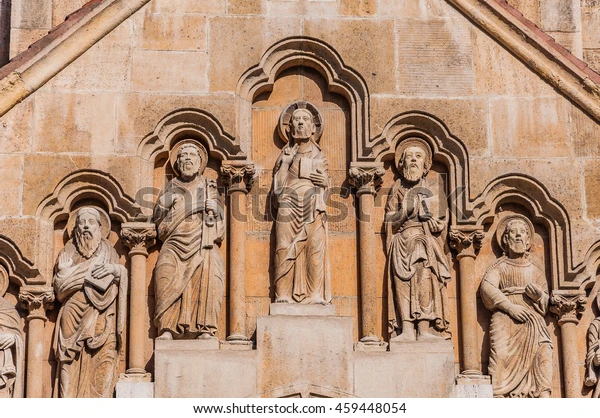
Giacomo Savelli, later Pope Honorius IV, was born into an influential, wealthy Roman family sometime around 1210. His father was Luca Savelli, a Roman senator, who died in 1255. As a young man, Giacomo studied at the University of Paris. Soon after he became the prebend then the canon at the cathedral at Chaton-sur-Marne. In a short time, he ended up receiving benefice from the Church of Berton in Norwich, England despite the fact that he never worked there. Having rich relatives seems to help!
In 1261, Pope Urban IV appointed Giacomo the cardinal deacon of Santa Maria in Cosmedin. This means he was a deacon, not an ordained priest. At almost the same time, he was papal prefect in Tuscany and captain of the papal army.
During many of these years, the popes were not living in Rome as it was too dangerous. They lived in Perugia or other towns. On 28 July 1265, Pope Clement IV sent him to Rome to invest Charles d’Anjou as king of Sicily. Then he left Rome again.
Giacomo was one of the six cardinals chosen to elect a pope after a three year vacancy. They chose Gregory X. Three years later, Cardinal-deacon Giacomo Savelli accompanied Gregory to Lyons for a great council. At this point, Gregory changed the papal election process and proclaimed toleration of only four mendicant orders: Dominicans, Franciscans, Carmelites and Augustinians.
In July 1276, Fiacomo and two other cardinals went to Viterbo to negotiate with the German King Rudolf regarding d’Anjou’s claims to Sicily. They also discussed Rudolf’s coronation as Holy Roman Emperor. Rudolf canceled the negotiations the next month when Pope Adrian died.
In 1277, Giacomo became the protodeacon of the Sacred College of Cardinals. It was he who crowned Pope Nicholas III and Pope Martin IV.
His Papacy
Pope Martin died 28 March 1285 in Viterbo. By this time, Cardinal-Deacon Savelli was old and quite crippled by either gout or arthritis to the point where he could neither stand nor walk.. Yet, he was unanimously elected pope on 2 April. After a month, he journeyed to Rome where he took up residence at the family palace on the Aventine Hill. Not being a priest, he was ordained, which happened on May 19. The next day, he was consecrated a bishop and crowned as pope, taking the name Honorius IV, the name of his great-uncle, Honorius III. Because of his infirmities’, he had a specially constructed chair on which to sit while celebrating Mass. To elevate the host, his hands had to be raised with a mechanical device.
He had to face a number of challenges during his twenty-three-month reign:
1. The Sicilian revolt had happened three years previous. They had rejected Charles d’Anjou and asked Peter III of Aragon to rule. Honorius did not approved of d’Anjou’s rule. Coincidentally, d’Anjou died two months after Honorius’ election. He felt so bad about the Sicilians that he wrote 45 ordinances to protect the Sicilians.
2. Rome loved having a Roman pope again. Life was comfortable for the papacy once more. Honorius built a new palace for himself on the Aventine.
3. This pope wished to served King Rudolf of Germany. Rudolf was technically the head of the Holy Roman Empire but had never been crowned. He sent Bishop Henry of Basel and the Archbishop of Mainz to Rome to request coronation arrangements. The Council of Wurzburg, in March of 1287, objected to the coronation so severely that Rudolf’s attempt failed.
4. The planned new crusade, developed at the Council of Lyon, never got off the ground. However, the tithes granted to the pope to raise money for that crusade did flow into Honorius’ coffers.
5. The two of the mendicant orders, the Dominicans and the Franciscans, had exclusive charge of the Inquisition. The other two, the Carmelites and Augustinians received privileges.
6. Honorius helped establish chairs for the Eastern Languages at his alma mater, the University of Paris. The concept was to assist those who tried to convert the Muslims in the East.
7. Mongol ruler, Arghun, sent an emissary with a message offering to develop a combine military conquest of Muslim lands. Honorius did not have that kind of money or ambition. Nothing happened.
Due to his advanced age and poor health, we can assume Honorius IV died of natural causes on April 3 1287.

Recent Comments